- Home
- Philip Pullman
Daemon Voices Page 34
Daemon Voices Read online
Page 34
In other words, they’re just not very good. And it’s true. For the most part, the apocryphal gospels in James’s selection have nothing like the clarity and force of Matthew, Mark and Luke, or the poetry of John. They include some remarkable fragments, but also a welter of undistinguished narratives, sayings, exhortations, and fairy tales that make pretty hard reading.
A different view of the value of the “excluded” gospels comes from Elaine Pagels, whose The Gnostic Gospels (1979) introduced many readers to the texts that were found at Nag Hammadi in Egypt in 1945. With the knowledge of these new sources (which were, of course, not available to M. R. James) she implies that the excluded texts were left out of the canon for another reason: “Why were these other writings excluded and banned as ‘heresy’? What made them so dangerous?”
Some of those other writings are fascinating indeed. But I wasn’t interested in heresy and danger at this point so much as in narrative pure and simple, and I particularly wanted to revisit the stories that were known to me as a child, so I returned to Matthew, Mark, Luke and John.
I considered the gospels purely as stories, and I was struck by how unlike most other narratives they are. They’re not biographies, because so much of the subject’s life is left out: instead the focus is almost entirely on the last year or two of his life and deeds. They’re not novels, with the novel’s interest in psychology and feeling and emotional relationships; and furthermore there is no description. What did Jesus look like? We have no idea. There are no landscapes; there is a storm, but apart from that no weather to speak of, and novelists enjoy weather and use it a lot. In their spareness and urgency the gospel narratives resemble folk tales and ballads, except that they have a quite different purpose: to tell us what to believe.
The problem is that they seem to tell us to believe contradictory things.
John’s gospel tells us that Jesus’s expulsion of the money-changers from the Temple took place at the beginning of his ministry; the other gospels say that it happened just before his crucifixion. At one point Jesus seems to be telling his listeners to take no thought for the morrow, and at another he condemns those foolish girls who didn’t think ahead and bring enough oil for their lamps; one day he blesses the peacemakers, and another he says he has come not to send peace, but a sword.
Of course, the church has had two thousand years to reconcile these contradictions and paradoxes, and there is no shortage of smooth and polished interpretations that make perfect sense, if you have a taste for that sort of thing.
What do I believe? I believe there was a man called Jesus who lived in what later became known as Palestine at the beginning of our era. I believe he was a moral teacher of unusually clear perception and force, and besides that, a storyteller and phrase-maker of genius. To invent a story like that of the Good Samaritan, a story that anyone can tell after only hearing it once, a story that makes its moral point with unforgettable power, takes genius. To tell listeners to take the plank out of their own eye before they criticise the speck in someone else’s takes a brilliant verbal inventiveness combined with an earthy sense of physical reality, a combination that is also a kind of genius. It seems that in the last couple of years of his life, Jesus wandered the roads of Galilee, Samaria and Judaea, preaching and gathering disciples until he was arrested and executed for political reasons by the Roman occupying power.
One of the main points of Jesus’s teaching seems to have been that the arrival of the kingdom of God was imminent. I believe he was wrong about this; certainly there has been no sign of it yet, after two thousand years. If he had not been put to death, I think he would have had to explain its failure to turn up, and that might have been fatal to his claims about it.
There is something else I wondered about: something in the gospels that felt like fiction. Most of the gospel narratives describe events at which there were other people present as well as Jesus, who could testify to what had happened. Even strange and unlikely events, such as the Transfiguration, occur in the presence of witnesses. There is always someone who can vouch for the truth of the narrative.
But on two occasions, Jesus is represented as being alone. The first is during the temptation in the wilderness, where he encounters Satan, who tries unsuccessfully to tempt him. How did the gospel writers know what Jesus said and did on that occasion? Logically, they could only know if he told them; but does that feel likely? The Jesus we see elsewhere does not tell stories about himself.
The other occasion is when Jesus and three of the disciples, Peter, James and John, go to the garden of Gethsemane on the night of his arrest. He tells the disciples to remain where they are while he goes a little way off, a stone’s throw away, and prays by himself. We are told the words of his prayer, and the Luke writer even says that his sweat became like great drops of blood falling on the ground: pretty much a close-up view. But in all three accounts, in Matthew, Mark and Luke, we are told that the disciples fell asleep and Jesus had to wake them up. If none of them was awake, there was no one to witness Jesus’s prayer, no one to see those drops of sweat like blood, no one to see the angel who, according to the Luke writer, came down from heaven to give him strength. And there was no time afterwards for Jesus to have told the disciples what went on in those anguished minutes, because he is arrested and taken away almost at once, and they never speak to him again. So again: how do the gospel writers know these things?
Altogether, those two passages felt very like fiction to me. The first is school debating society knockabout and the second is profound and very moving psychological drama, but if they don’t even pretend to produce any evidence or name any witnesses, I can only regard them as fiction.
And then there was the problem implicit in the very name Jesus Christ. Jesus and Christ, it seemed to me, were two quite separate beings. There was the man Jesus, whom the gospels talked about, and there was the other sort of being, Christ, the Messiah, who featured more prominently in the Epistles. In the letters Paul wrote, he uses the term “Christ” a hundred and fifty or so times, and “Jesus” about thirty. Paul is clearly much more interested in Christ; by the time he wrote, a generation or so after the crucifixion, the myth was already overtaking the man.
Thinking of these problems and contradictions in the gospels, I wondered if they could originate in the idea of a man working out his own thoughts as he spoke. Could there have been another voice close by, “correcting” what the first voice said so as to make it conform to an emerging “line”? In effect, there would be two characters: Jesus, obviously a man and no more than a man; and Christ, a fiction. The idea began to intrigue me. How would the story work?
Needless to say, the second character—the Christ—could not be God. I can’t write about things I don’t, at some level, believe in. I’d have to find another way of representing him. At the same time, I wanted this Christ to embody as much as possible of what the church later did to alter, edit and ignore the words of Jesus, and to benefit from his death and his supposed resurrection.
What happened as I wrote and as the story appeared under my hands was something many writers will recognise: a character began to move, speak and think independently of my intentions. This Christ developed in a way I hadn’t expected, and found himself with a human conscience, tempted and torn and compromised. And in the end what compels him to do what he does is the desire to tell a story, but he no longer thinks that his story will tell the truth; the Stranger has told him that truth is not the same as history. Truth is transcendent, eternal, above the vicissitudes of time and chance, and the job of the storyteller is to alter history, if necessary, so that it serves the cause of that greater truth. The Stranger himself, of course, expresses the view the church would express, if there were such a thing as a single church, and it could intervene in its own history, and it had a voice. I can’t help it if from time to time he sounds like the Devil.
The story at the heart of Christianity leads to
the cross, but it doesn’t end there. The cross has a dramatic visual clarity that accounts for much of its success as a symbol (it’s a triumphant piece of what would now be called branding), but no Christian would claim that the death on the cross was the climax of the Christian story. The climax is the resurrection. That’s the part that everything else is leading up to.
And as to that resurrection, there’s one supreme piece of narrative tact in all four gospels. We never see the resurrection itself: we only see the consequences. An account of a dead body coming to life and walking out of a graveyard would be squalid, grotesque, bathetic. The confused, contradictory, almost breathless accounts of what happened on the morning after the sabbath when one woman, or two, or three, came to the empty tomb are vastly superior as storytelling—intensely realistic accounts of the confusions and contradictions on the morning when the grave was found to be empty, of a kind recognisable to anyone who’s served on a jury and heard conflicting statements from witnesses. The realism of that quite magnificent storytelling has led some Christians to maintain that its very contradictions are testimony to the truth of the central claim, because if the disciples were making it up, wouldn’t they at least try to make their accounts match? I believe that deserves praise for its chutzpah, but it doesn’t outweigh the utter improbability of that central claim.
I believe the story of the resurrection in the way I believe the account in the Iliad of Priam’s visit to the tent of Achilles. That is also moving and convincing—when I read it I feel that if that event had happened, it would have happened just like that.
But it’s a story, and I think that’s all it is. In his The Resurrection (2008), the great Jesus scholar Geza Vermes examines six possible explanations for the empty tomb, finding none of them entirely satisfactory; and concludes that the best way of understanding the event is to think of a “resurrection in the hearts of men.” If only Christians had been wise enough to leave it at that!
Something, however, seems to have brought the disciples to a pitch of excitement following the death of Jesus and the disappearance of his body. They became convinced that he was alive, even if they couldn’t actually see him, or that some of them had seen him, though they didn’t recognise him at first, and that not long afterwards he ascended into heaven. This conviction—together with the extraordinary and growing notion that the man they had known was in fact the son of God himself—was enough to fire the disciples with the energy and courage to travel far and wide preaching, enduring every kind of hardship and persecution, organising groups of believers in every city and district, and developing the first complexities of Christian theology.
Here too, I believe Christians display a kind of impudence: how on earth, they say, could simple men and women, with no training or experience, create such a thing as the Christian church unless they really were inspired by God? Quite easily, is the answer. Creating a religion is not difficult in the least: look at Scientology; and we’ve seen in our own time how readily people can be induced to feel a state of ecstatic religious energy that can be turned to political ends.
I believe that the church that developed out of those early activities and grew to a peak of worldly power and wealth, that split into different factions, which then persecuted one another with vicious cruelty; that sponsored great art and music; that set up schools and hospitals; that looked after the poor and the dying; that for hundreds of years provided poor people with the only examples of artistic and musical and architectural beauty they would ever encounter; that supported dictators in many third-world countries and persecuted its own priests when they championed the rights of the poor; that hid evidence of childhood abuse by priests and nuns; that comforted the lonely and the sick; that discriminated against women and homosexuals; that encouraged great philosophical and scientific speculation with one hand while shutting it down with the other; in short that did all kinds of good and all kinds of evil—is an entity based on nothing but its own organisational momentum. It’s entirely a human construction.
In this construction I believe that the imaginary figure of Christ was of much greater use to the church than the historical person of Jesus, and that when talking about him it would be an aid to clear thinking if we said which part of him we meant. Thus “Jesus was born in Bethlehem,” not “Christ was born in Bethlehem”; “Christ was the Son of God,” not “Jesus was the Son of God.” I dare say that Christians will claim they are one and the same, but they are not: they have different origins and different functions.
Human beings are inclined to look for causes and explanations where there are only mysteries; in the absence of any other cause, they will settle for a supernatural one rather than for no cause at all. I don’t believe this makes them stupid or wicked; it’s how they are. But the fact that they believe something, even intensely, doesn’t make it true. In all its vast complexities and subtleties, Christian theology is a work of the human imagination, not an investigation of truth.
And what of Jesus?
I keep thinking of that man who, two thousand years ago, was betrayed and flogged and put to death.
And I imagine this: I imagine a procession of ghostly visitors to Jerusalem in that week before Passover—spirits from the future, ghosts of Pope and priest and prelate and preacher, cardinals and archbishops and elders and patriarchs, in all the panoply and splendour of their rank, the chasubles, the albs, the copes, the pectoral crosses, the jewelled rings, the mitres, the tailored suits and the Cadillacs, the gleaming teeth and the bouffant hair.
And I imagine that each of these ghosts has the power, should he wish to use it, to embrace Jesus, much as Judas did, but for a different purpose: their kiss will transport him magically at once to Alexandria, or Athens, or Baghdad, or Rome, and thus save his life. There would be no terrible death on the cross. Jesus would live on, perhaps to vanish into obscurity, perhaps to add to the extraordinary and wonderful words he had spoken, perhaps even to write a book; but at least be alive and safe from that appalling death.
And I imagine each of these ghosts looking at the man as he goes about his angry work, denouncing the money-changers, debating with the scribes and chief priests and lashing them with his wit and his scorn, and getting closer every day to the betrayal and the death that each of the ghosts has known about for so long.
And I imagine the ghosts whispering:
“After all, it’s God’s will…”
“He foretold it himself…”
“I can’t stand in the way…”
“It’s a painful and sorrowful thing, no doubt, but after all, three days later…”
“The entire current of human history from that day on would be turned aside, and would go in a different direction altogether. This is too great a responsibility for me to bear…”
“My grandeur! The magnificence of my cathedral! The splendour of the music in my choir! It is my duty not to give those things up…”
“Looking at it in all, taking an objective view, the church without Jesus is better than Jesus without the church. I shall let him die…”
“Without this death and the church that came after it, that little dying child I spoke to in the hospital will have no solace…”
They look at the man, they see his rough hands and dirty fingernails, they hear the rasp of his voice, they smell a sweet ointment mingled with the sweat from his body, they see the snap and flash of his eyes as he scoffs at the Pharisees; and any one of the ghosts could reach out and save him from the death that’s two days, a day, a few hours away.
And for a thousand reasons, each of the ghosts holds back and turns aside; and proudly or fastidiously, humbly or uneasily, with diplomatic murmurs of regret or with passionate sorrow, they drift away and go back to their own time and the comforts and rituals of the church they know, and abandon the man to his death.
That’s the thought-experiment I’d put to every believing Christian: if you cou
ld go back in time and save that man from the horrible death of crucifixion, would you or not? And if you think it would be better to let him die so that the church would live, how are you different from Judas?
THIS ESSAY ORIGINATES IN TWO PIECES: “HOW TO READ THE GOOD MAN JESUS AND THE SCOUNDREL CHRIST,” AND: “AFTERWORD TO THE GOOD MAN JESUS AND THE SCOUNDREL CHRIST” FROM THE PAPERBACK EDITION OF THE GOOD MAN JESUS AND THE SCOUNDREL CHRIST (CANONGATE, 2011).
I wrote that book for a series called Myths, published by Canongate. I liked the idea of telling a myth, and I tried several of them in my mind before realising that this was the natural home for my thoughts about the central figure of the Christian religion. It’s been old hat now for well over a hundred years to talk of Jesus as a myth, but that didn’t stop several dozen people writing to me when the book was announced to tell me that I was going to be summoned before the Great White Throne and condemned to hell. Oddly, the letters all stopped once the book was published. I suppose the writers thought it was too late then.
The Cat, the Chisel and the Grave
DO WE NEED A THEORY OF HUMAN NATURE TO TELL US HOW TO WRITE STORIES?
Considering how a writer might know when a story is going wrong, suggesting that writing is best done by going with the grain, not against it, and proposing storytelling as a great School of Morals
Generally speaking, I find theories of any kind inimical. Though I’ll qualify that at once by saying that it’s other people’s theories that are inimical. My own are entirely congenial. I have a theory about science, for example: I think it far more likely than not that there are some statements that are true, and that much of what science tells us belongs in that category. I don’t think it’s at all likely that science is a culturally constructed way of thinking that is only true for us, and might not be true for someone in another place or another time.

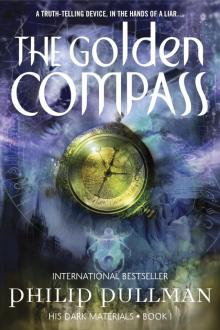 The Golden Compass
The Golden Compass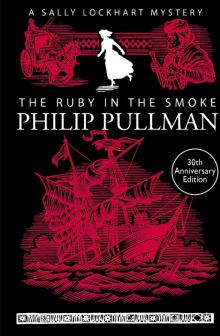 The Ruby in the Smoke
The Ruby in the Smoke I Was a Rat!
I Was a Rat!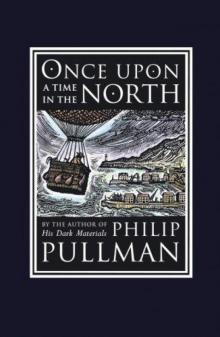 Once Upon a Time in the North
Once Upon a Time in the North The Tiger in the Well
The Tiger in the Well The Subtle Knife
The Subtle Knife The Butterfly Tattoo
The Butterfly Tattoo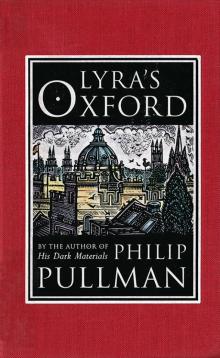 Lyra's Oxford
Lyra's Oxford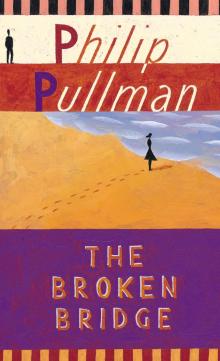 The Broken Bridge
The Broken Bridge The Amber Spyglass
The Amber Spyglass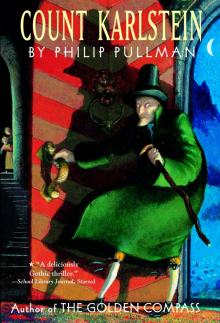 Count Karlstein
Count Karlstein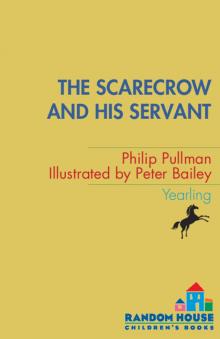 The Scarecrow and His Servant
The Scarecrow and His Servant The Shadow in the North
The Shadow in the North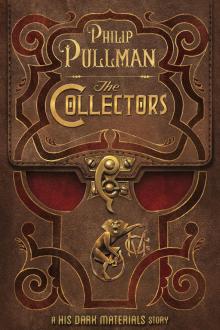 The Collectors
The Collectors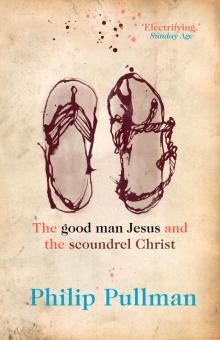 The Good Man Jesus and the Scoundrel Christ
The Good Man Jesus and the Scoundrel Christ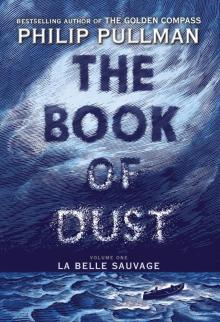 La Belle Sauvage
La Belle Sauvage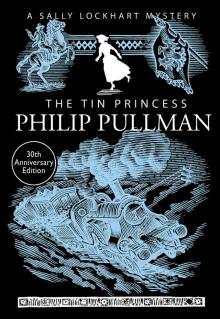 The Tin Princess
The Tin Princess The Firework-Maker's Daughter
The Firework-Maker's Daughter The Book of Dust: The Secret Commonwealth (Book of Dust, Volume 2)
The Book of Dust: The Secret Commonwealth (Book of Dust, Volume 2)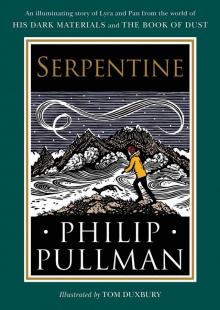 Serpentine
Serpentine Daemon Voices
Daemon Voices The Amber Spyglass: His Dark Materials
The Amber Spyglass: His Dark Materials The Amber Spyglass hdm-3
The Amber Spyglass hdm-3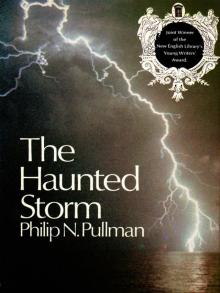 The Haunted Storm
The Haunted Storm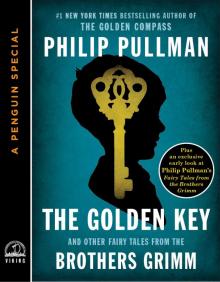 The Golden Key
The Golden Key His Dark Materials 01 - The Golden Compass
His Dark Materials 01 - The Golden Compass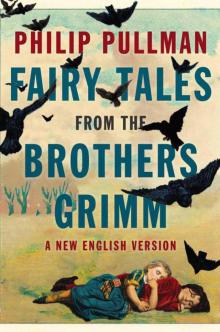 Fairy Tales from the Brothers Grimm: A New English Version
Fairy Tales from the Brothers Grimm: A New English Version His Dark Materials 02 - The Subtle Knife
His Dark Materials 02 - The Subtle Knife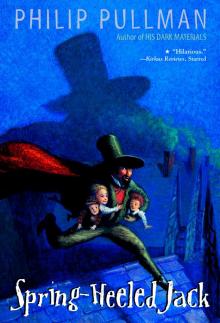 Spring-Heeled Jack
Spring-Heeled Jack The Golden Compass hdm-1
The Golden Compass hdm-1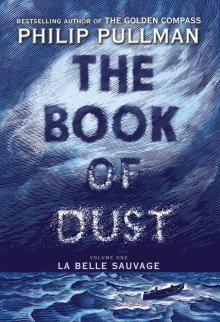 The Book of Dust, Volume 1
The Book of Dust, Volume 1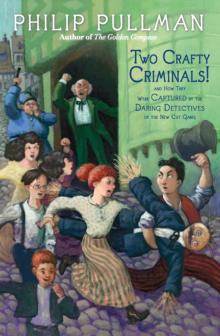 Two Crafty Criminals!
Two Crafty Criminals!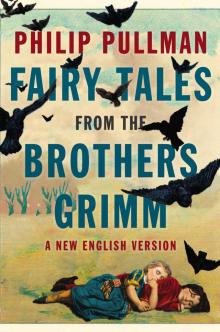 Fairy Tales from the Brothers Grimm
Fairy Tales from the Brothers Grimm The Subtle Knife: His Dark Materials
The Subtle Knife: His Dark Materials His Dark Materials Omnibus
His Dark Materials Omnibus The Golden Compass: His Dark Materials
The Golden Compass: His Dark Materials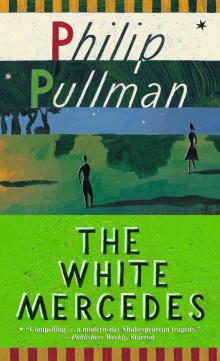 The White Mercedes
The White Mercedes